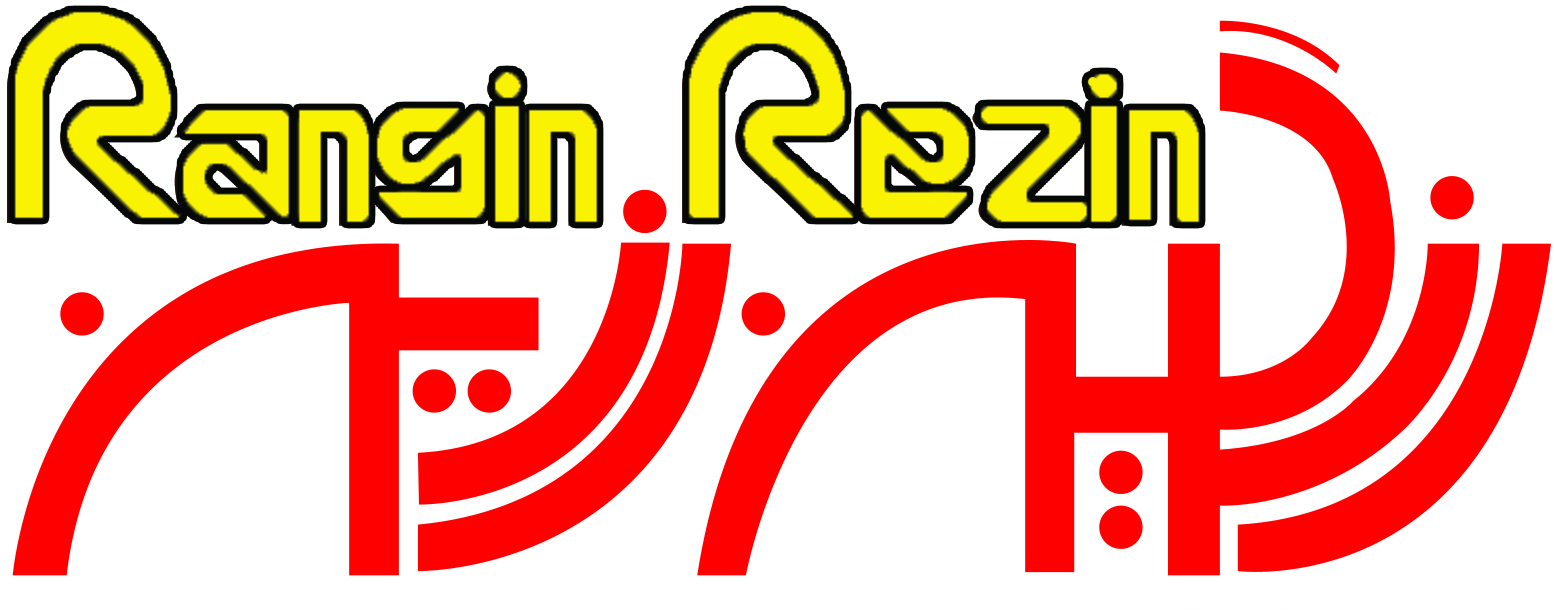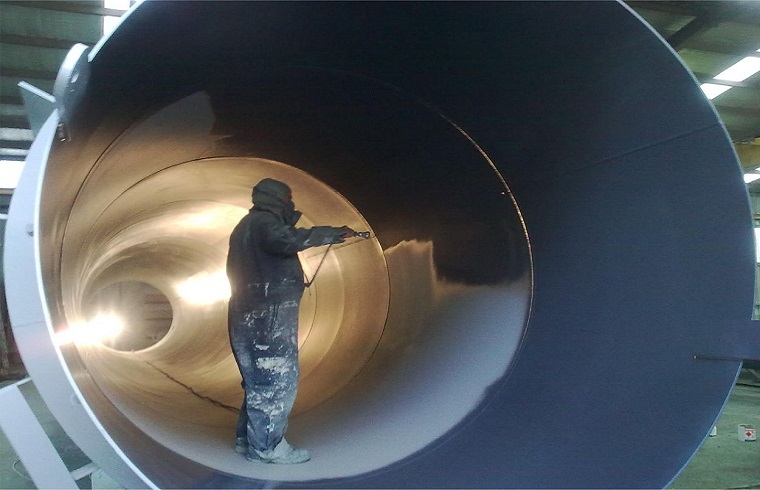Anti-corrosion coatings are coatings that are used to secure and strengthen metals, and the job of all of them is to protect the surface of the object from the penetration of corrosive substances such as oxygen، Keep hydrogen sulfide and carbon dioxide or exposure to all kinds of environmental or industrial chemicals.There are different types of these covers, and we will discuss each of them below.
Types of anti-corrosion coatings
Materials such as acids, alkalis, salts and solvents alone or together lead to surface corrosion.Since corrosive materials have a wide range, different types of anti-corrosion coatings have been created.
Some of the most important of these materials are summarized in the following:
*Ceramic coatings such as acid and base resistant tiles and mortar
*bricks
*Resin coatings
*Composite coatings
*polymer coatings
*Thermoplast sheets
*Anodic, cathodic and general anti-corrosion materials and…
Ceramic coatings:These coatings are used on ferrous metals and alloys (steels and cast irons) and non-ferrous alloys and protect them from corrosion and oxidation at high temperatures Are.
This type of coating is used for special applications such as wear resistance, chemical resistance, electrical resistance and thermal resistance. Ceramic coating is used in applications such as high temperature heat treatment furnace equipment, chemical reactor equipment, heat exchangers.
Bricks: Anti-corrosion tiles or bricks with very high chemical, mechanical and other resistances and low porosity in order to cover tanks, canals, pits, foundations, canals, samps ، Furnace walls, industrial chimneys, protective floors and transporters of corrosive chemicals have been designed and created.
Resin coatings:
Depending on the work and work environment, many businesses need anti-corrosion coating and chemical-resistant flooring.Most commercial and industrial chemical resistant flooring available on the market are based on epoxy resin.
Chemical resistant flooring has advantages:
1_ Hygienic and clean surface: It provides you with a completely smooth surface and they can be cleaned easily.
2_ Hardness of anti-corrosion coating:Epoxy is one of the hardest materials that you can install on the ground without being damaged by extreme pressures, including heavy machines such as forklifts and moving equipment ، Resist.
3_ Lifespan: With proper care and maintenance, chemical resistant coatings for concrete are expected to last at least a decade.According to some observations, some epoxy flooring has lasted more than 20 years with minimal renovation or repair.
4_ Diverse coloring and styles: Chemical-resistant epoxy flooring can be designed to bring charm and beauty to your environment.
Epoxy coating is a two-component product based on solvent-free and non-toxic modified epoxy resin, which is used as a coating for concrete surfaces and inside tanks to store water، Acids, some petroleum derivatives, fats, dairy products, hard water and other corrosives can be used.
Composite coatings:
Common types of composite coatings in the industry include three categories: polymer matrix composites and ceramic and aluminum metal matrix.Due to the very high stability of polymer-based composites and their very good resistance in corrosive environments, these composites، They have found wide applications in marine industries, including the construction of boat hulls and offshore ships and facilities. The construction of airframes, the construction of wind turbine blades and helicopter blades, and aircraft radar coverage are composite applications in the aerospace industry.
Polymer coatings:
These coatings are used for various applications:
1_ For transportation, these covers usually have a protective, decorative or aesthetic functional role for vehicles (cars, trains, airplanes, etc.).
2_ In the living environment, these coatings are used for protection and safety.For example, with hard coating and good anti-spin properties, they are used for kitchen cabinets, table tops and other devices.
3_ This coating reduces contact with bacteria and viruses and causes health care, for example in counters.
4_ They are used for functional and decorative purposes in electronic devices such as mobile phones and laptops.
5_ These coatings act as protection and barriers in food and cosmetics.
6_ Anti-reflective coatings are applied on solar panels to prevent efficiency loss caused by reflection and are energy fields.
7_ In industrial processes such as pipelines to transport gas and fluids or membranes to separate/purify certain components, they act as protectors.
Thermoplast coating:
These types of paint adhesives are simple solutions of various resins or polymers that have been dissolved in suitable solvents and are especially suitable for maintenance work.
Anodic anti-corrosion materials:
As their name suggests, these compounds prevent the oxidation of metal during the oxidation reaction by forming a protective layer in the anode and are effective in protecting metal pipes and tanks.
Cathodic anti-corrosion materials:
These materials reduce the corrosion intensity by forming a protective layer in the cathode and protect metals.
General anti-corrosion materials:
By creating a protective coating on all surfaces, including anode and cathode, these compounds reduce the intensity and speed of corrosion of objects and metals. The most common use of corrosion inhibitor materials in the oil, gas, and other industries، It is petrochemical and power plant so that the facilities of these industries are protected against damage caused by chemicals and environmental factors and prevent the leakage of compounds into the environment.
The choice of each of these coatings depends on the experience and knowledge of the nature of the materials and coatings.In choosing the types of anti-corrosion coating, you should pay attention to things like: the type of corrosive material and its concentration, ambient temperature, bed condition, mechanical and thermal stresses.
Advantages of using anti-corrosion coatings
*Protecting the surface against corrosion, wear, moisture, impact and other possible damages
*Adhesion to all kinds of concrete, metal, composite and wooden surfaces due to its mechanical strength and high adhesion strength
* Due to its high flexibility, the anti-corrosion coating can be used as a sealant.
*Having low absorption power and high resistance to heat and fire * Having the ability to spray and dry quickly after spraying
Applications of anti-corrosion coating
1_ Due to the abundant use of acidic, basic and alkaline materials, anti-corrosion coating is used to insulate the floors and walls of drug production sites.
2_ Benzotriazole corrosion insulators also prevent corrosion and staining of copper surfaces.
3- Since industrial and non-industrial wastewater contains large amounts of corrosive chemicals, from anti-corrosion coatings as insulation on the surface of sewage channels and pipes، Treatment plants and recycling ponds are used.
4- Most industrial units that deal with chemicals face the problem of corrosion in abundance. In other words, anti-corrosion coatings are considered very necessary for these industries.
5_ To reduce the acid effects, volatile amines are used as anti-corrosion coating in steam boilers.
6_ Corrosion coatings are usually used mixed with paint, one of the pigments with anti-corrosion properties is zinc phosphate.
7_ Orthophosphates are used in water treatment systems over time to prevent the fading and destruction of lead and copper from pipes.
8_ Disinfectants are also used to prevent microbial corrosion. Benzalkonium chloride is also often used in the oil field industry.
9_ For lubrication, zinc dithiophosphate is usually used; These materials cause zinc sulfide to precipitate on the surface.
10_ Corrosion coatings are usually added to fuels, hydraulic fluids, coolants, boiler water, engine oil and many other liquids. All kinds of corrosion coating can be used for fuels.


